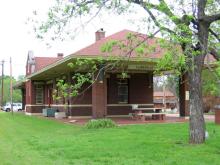Tri-County Rural Electric is Going Big as First Electric Cooperative To Do Fiber in Pennsylvania
When Craig Eccher, CEO Tri-County Rural Electric Cooperative, joined Christopher on the podcast last fall, he had an exciting project to talk about: the electric cooperative, after strong calls from its membership asking their utility to deliver broadband, stepped up and committed to an $80 million, 3,250-mile fiber build across the rugged terrain of rural Pennsylvania, the first leg propelled by $52.6 million in federal and state grants. Tri-Co Connections, the subsidiary building the network and serving as provider, has begun connecting residents in an aggressive plan to serve 10,000 users in the next three years. The move makes Tri-County the first electric co-op in Pennsylvania to enter the fiber space, and it's doing so in dramatic fashion.
More Humble Beginnings


